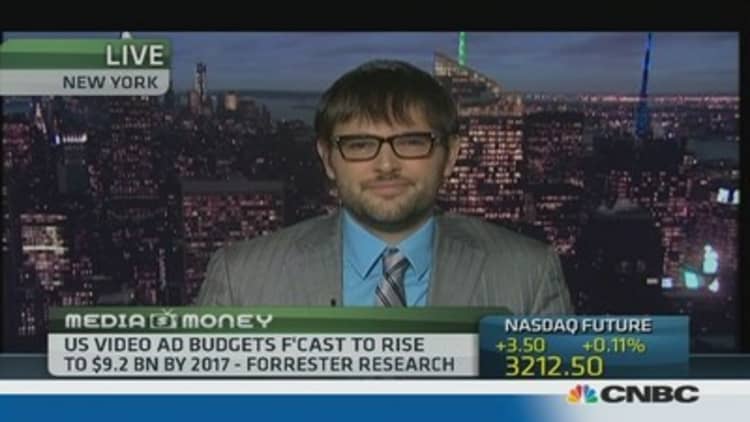Before Jeff Bezos bought The Washington Post, Aaron Kushner bought the Orange County Register.
Kushner believes in newspapers. Physical newspapers. The kind made with ink and news print. And apparently, he's making his beliefs work.
"A physical newspaper can do things a digital paper cannot," he told CNBC. "It conveys and builds a sense of community that you don't get online." He admits this is his own observation, not the result of research. Still, "You're never going to tape your iPad to the refrigerator."
Kushner and partner Eric Spitz bought the Register's parent company, Freedom Communications, out of bankruptcy in July 2012 with the help of unnamed investors. Kushner declined to say how much they paid for the paper and several local weeklies, but the Los Angeles Times reported the purchase price may have been $50 million to $60 million.
(Read more: Hedge fund ads: Will investors go 'Meh'?)
The new owners have poured millions into the operation, adding 440 employees or rehires (including 180 news staff) and increasing pages. Freedom has expanded two of its weeklies into dailies. Most recently, the company branched out into hostile territory—Long Beach, Calif. The Long Beach Register is now competing against the entrenched local paper, the Long Beach Press-Telegram.
"He's going to spend a lot of money, we're going to spend a lot of money, and then he's going to go home a loser," John Paton, CEO of the Press-Telegram's parent company, told the Times.
If it bleeds, it leads—everywhere except here

Freedom hopes to succeed counter-intuitively. Instead of the old adage, "If it bleeds, it leads," Kushner and Spitz want to focus on very positive, very local news. Perhaps that's no surprise, since the CEO came from the greeting card industry.
"In the life of a community, 20 percent of events are things that are unhappy, depressing, what you call in the newspaper business 'hard news,'" said Kushner. "Eighty percent of life in a community is the opposite."
A year ago the Register sent out $100 vouchers to all seven-day-a-week subscribers. Readers could assign the money to purchase ad space for their favorite charities. More than 1,300 nonprofits benefited from the move. "Our subscribers," Kushner said, "are passionate about it."
(Read more: A tipping point in digital ads' shift)
Kushner, a former gymnast at Stanford University, had his eye on the newspaper business for some time. He tried to buy The Boston Globe but failed, before buying Freedom Communications. He has expressed interest Tribune Company's newspapers, including the Los Angeles Times.
Kushner admits he's never run a newspaper before and never lived in Orange County, but he claims his ideas are working. He said Freedom Communications is profitable on an operating basis.
"The average spending per advertiser is going up, and we've seen a lot of new advertisers join, or return, to the Register," he said.
Since he took over, circulation for the Register has fallen 2 percent, but growth in the smaller community weeklies is more than making up for that, he said.
(Related video: What Washington Post sale means: Pro)
"I don't think we had any illusion that this was going to be easy," Kushner said. "What has surprised me is how hard and how fast the team has been able to move."
However, his trumpeted arrival in the OC has brought criticism.
"Despite all the saccharine hype, Kushner's 15-month reign at Grand Avenue demonstrates no point greater than that the 40-year-old businessman with a background in hawking greeting cards is a superb salesman whose ignorance of journalism only seems to fuel his rah-rah enthusiasm," wrote the OC Weekly last month.
The report points out that Freedom recently suspended matching funds for employee 401(k) plans.
"We inherited a very rich 401(k) program," Kushner told CNBC. "Unfortunately, we made the determination that we would not, for the time being, continue the company match."
Naysayers aside, Aaron Kushner is accustomed to being underestimated. When he got into the greeting card business, "It was very hip to say digital greeting cards would destroy physical greeting cards," he said. "Obviously that didn't happen."
—By CNBC's Jane Wells; Follow her on Twitter: @janewells.


